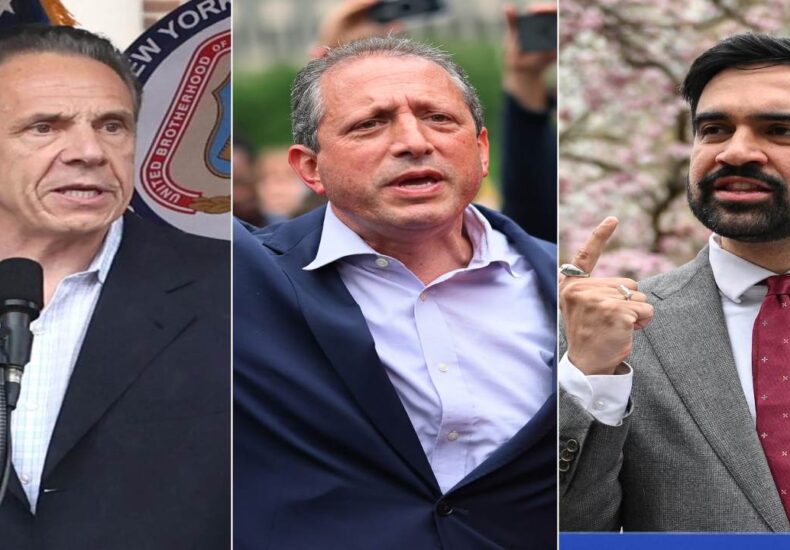
New York City’s Mayoral Race, A Local Election With Global Implications
Fundacion Rapala – New York City’s mayoral race this year carries a weight far beyond its five boroughs. Although mayoral elections are traditionally local, this one resonates like a national referendum not only on policy but on identity, diversity, and America’s political direction. As the world’s attention turns toward New York, voters prepare to choose a leader whose influence will stretch from Wall Street to Washington and echo internationally. I believe this moment underscores how municipal politics can reflect deeper anxieties, aspirations, and divisions shaping modern democracy.
A City That Sets Trends for the World
As many New Yorkers proudly say, “Whatever happens here eventually happens everywhere.” That statement feels truer than ever. New York is not only America’s largest city; it is a cultural laboratory, a financial command center, and a global media capital. Consequently, choosing its next mayor becomes a symbolic decision about values, leadership, and the nation’s future. Even voters like Giovanni Lanzo, a Brooklyn pizzeria owner still “tossed up,” recognize the stakes. His message “The whole world watches what New York does” reflects a growing awareness that this election is not just civic duty; it is civic responsibility on an international stage.
“Read More : King Charles Finally Banishes His Brother But Is It Too Little, Too Late?”
A Historic Front-Runner and a Symbol of Change
At just 34, Zohran Mamdani stands poised to become one of the most transformative mayors in American history. An immigrant, a Muslim, and a democratic socialist, he represents generational and ideological shifts within the Democratic base. Supporters see him as a beacon a leader who embodies multicultural vibrance and justice-driven governance. As filmmaker Alice Henty put it, “Zohran is the glimmer of hope.” Meanwhile, skeptics like Sid Stewart fear a departure from traditional American identity, particularly as Mamdani champions progressive ideals in a polarized climate. The tension here reveals how identity politics, immigration, and cultural shifts continue to shape the national dialogue.
Influence That Still Shapes Outcomes
No New York political story can escape Donald Trump’s orbit. Once a Manhattan mogul, now a former president watching closely, Trump sees this race as a symbolic battleground. He warns that a Mamdani victory risks federal aid a familiar tactic meant to frame progressive leadership as dangerous. Yet, ironically, his involvement may energize Mamdani’s supporters. Many voters reject the idea of governing through fear; they see this moment as a chance to prove that the United States can embrace diversity, bold ideas, and young leadership. As one voter questioned, “Are we going to live in fear and only react to Trump forever?” That question reflects a deeper societal reckoning: must politics always be reactionary?
“Read More : he Fed Faces a Crucial Test: Rate Cuts Amid a Data Blackout and Government Shutdown”
Complicated Choices in a Historically Blue City
Although New York leans overwhelmingly Democratic, this election is anything but straightforward. Former governor Andrew Cuomo seeks redemption as an independent candidate, counting on voters uneasy with Mamdani’s ideology. Meanwhile, Republican Curtis Sliwa taps into public safety concerns and nostalgia for tough-on-crime leadership. Yet, despite this ideological spread, what fascinates me most is the nuance among ordinary voters. In Manhattan, activism reigns; in Staten Island, traditionalism prevails. Queens and Brooklyn wrestle with identity, affordability, and safety. The Bronx raises questions of economic justice and opportunity. This diversity of thought proves New York may be liberal, but it is far from monolithic.
A Tale of Two Americas Inside One City
Ultimately, New York’s election exposes a national divide compressed into one metropolis. On one side are voters envisioning a more inclusive, progressive era. On the other side are those defending traditional values and fearing cultural dilution. Yet both groups share something crucial: belief in New York’s importance. Clean-energy researcher Hassan Ragy summarized the moment perfectly Mamdani’s rise “is not just about New York, but the kind of change we need across the country.” In my view, this election is about defining the American story in a moment of profound transition.
More Than a Mayor A Message to the World
Whichever candidate prevails, the implications will stretch far beyond city limits. A Mamdani victory would signal a bold new chapter in American politics, challenging old assumptions about who can lead and how power looks. A Cuomo or Sliwa win would mark a return to more conventional leadership paths, perhaps signaling caution in an era of rapid social change. Either way, New York once again stands as a mirror reflecting not only its streets and skyline, but the dreams, fears, and identity struggles shaping the nation. And for better or worse, the world is watching.